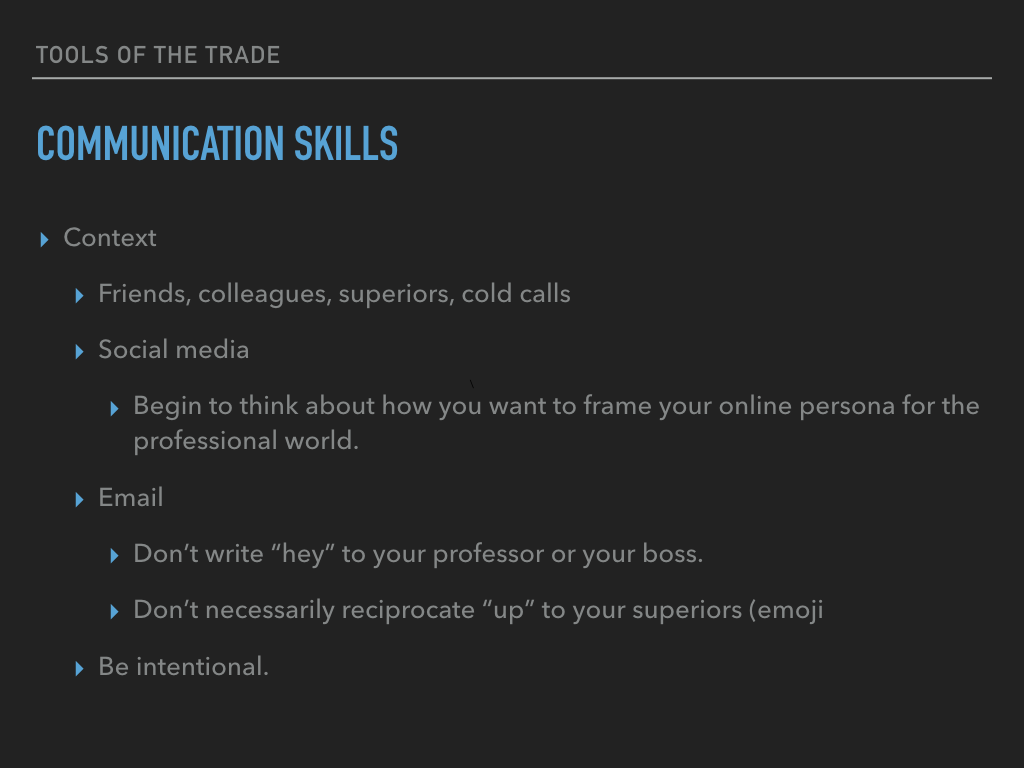Last month, I had the privilege of giving a talk at Towson University to the Senior Instrumental Music Education Seminar. Friend and colleague Dr. Christopher Cicconi, TU’s Director of Bands and Orchestras, was kind enough to invite me to discuss the wide range of musical opportunities and challenges to the musician entering the workforce in, in this case, 2019.
What is an Entrepreneur?
First we answered a critical question: what is an Entrepreneur? In short, an entrepreneur is a type of inventor who invents ways to make money. Arts entrepreneurs apply this spirit of invention, unsurprisingly, to the arts.
Job Opportunities in Music
We discussed a variety of job opportunities centered around, but expanding outward from an undergraduate degree in music education. These included:
K-12
Church
Higher Ed
Youth Orchestra
Lessons
Freelance
DIY
I particularly enjoyed sharing some experiences to do with my experiences as a church Music Director. My position is that instrumental music teachers benefit immensely from coming to better understand choral music repertoire and the mechanics of the voice.
Other Work
We also dove into a range of other jobs out there that don’t typically comprise a full career but come up in short bursts throughout the year. We included discussions about:
Arranging
Drill Writing
Summer Camps
Judging
Writing
Public Speaking
Clinics, Consulting
Do it Yourself
Perhaps my favorite segment of the talk was the chance to share from my experiences as founder Dallas Festival of Modern Music and Symphony Number One as I encouraged this creative group of future music educators to consider the ways that they can observe the world around them and create new organizations and projects that address specific needs. Among the examples discussed were the following:
Found a nonprofit
Festival
Group
Project
Build an app
Start a podcast
Commission a new work
Tools of the Trade
Critical to managing this menu of opportunities is a toolkit that allows a career musician / music educator to thrive as they build their reputation. We discussed communication skills, including:
email
social media
phone calls
in-person
website
We also talked about developing specific areas of expertise which can help burnish one’s reputation in the industry. I shared a bit about my current favorite composer, Florence Price, and some of the ways that my small but growing involvement in efforts to bring her music to the fore have brought me into touch with colleagues interested in learning more about her music. This is an example where there is a positive intersection between:
doing something important in the music world
exploring personal repertoire interests
building a career platform that extends the ability to pursue the first two areas
Critically, we discussed the importance of authenticity. If you go into the career merely looking for the easiest path to rising through the ranks, it will be difficult to attract interest to your work. But, if you find opportunities that you personally find rewarding while you serve a higher purpose in the industry and in your local community, people will eventually take notice. It is important to stay grounded in this business and building meaningful projects is a great way to do that.
We also talked about how to develop skills in new areas with no prior experience. I wrote a brief twitter thread to explain this:
Presentation Deck
Below is the slide deck I used. To download a PDF or embed the talk, click the buttons below. If you would like access to the original slide deck or the complete talk, please feel free to contact me.
Download this presentation (PDF):
Embed on your own site (Slideshare):
Read More


























